
Thimphu: The Heartbeat of Bhutan's Serenity
Thimphu, the capital city of Bhutan, is a unique blend of tradition and modernity nestled in the Himalayas. With a population that warmly embraces visitors, Thimphu offers an authentic glimpse into the rich culture and serene lifestyle of Bhutan. The city is known for its stunning landscapes, vibrant festivals, and timeless monasteries. As you explore Thimphu, you'll discover the grandeur of Tashichho Dzong, a fortress that houses the throne room and offices of the king. The National Memorial Chorten is another significant landmark, built in memory of the third king of Bhutan. For a taste of local life, visit the bustling Weekend Market where artisans sell traditional crafts and fresh produce. Nature lovers will enjoy the peaceful trails of the Motithang Takin Preserve, home to Bhutan's national animal, the takin. The city also boasts a number of scenic viewpoints, such as the Buddha Dordenma statue, offering panoramic views of the Thimphu valley. In Thimphu, the harmony between man and nature is palpable, making it a must-visit destination for those seeking tranquility and cultural richness.
Local tips in Thimphu
- Dress modestly when visiting religious sites to show respect to local customs.
- Visit the Weekend Market early to avoid crowds and get fresh produce and unique crafts.
- Carry cash, as many small shops and markets do not accept credit cards.
- Plan your visit around local festivals like the Thimphu Tshechu to witness vibrant cultural performances.
- Hire a local guide to enhance your understanding of the city's historical and cultural significance.
Thimphu: The Heartbeat of Bhutan's Serenity
Thimphu, the capital city of Bhutan, is a unique blend of tradition and modernity nestled in the Himalayas. With a population that warmly embraces visitors, Thimphu offers an authentic glimpse into the rich culture and serene lifestyle of Bhutan. The city is known for its stunning landscapes, vibrant festivals, and timeless monasteries. As you explore Thimphu, you'll discover the grandeur of Tashichho Dzong, a fortress that houses the throne room and offices of the king. The National Memorial Chorten is another significant landmark, built in memory of the third king of Bhutan. For a taste of local life, visit the bustling Weekend Market where artisans sell traditional crafts and fresh produce. Nature lovers will enjoy the peaceful trails of the Motithang Takin Preserve, home to Bhutan's national animal, the takin. The city also boasts a number of scenic viewpoints, such as the Buddha Dordenma statue, offering panoramic views of the Thimphu valley. In Thimphu, the harmony between man and nature is palpable, making it a must-visit destination for those seeking tranquility and cultural richness.
When is the best time to go to Thimphu?
Iconic landmarks you can’t miss
Buddha Dordenma Statue སྟོན་པ་རྡོར་གདན་མ།
Discover tranquility and spirituality at the breathtaking Buddha Dordenma Statue, the largest Buddha statue in Bhutan, nestled in the heart of Thimphu.
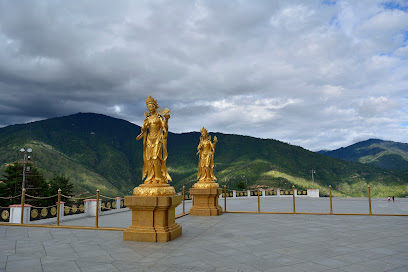
National Memorial Chhorten རྒྱལ་ཡོངས་རྗེས་དྲན་མཆོད་རྟེན།
Explore the National Memorial Chhorten in Thimphu, a stunning Buddhist temple embodying Bhutan's rich culture and spiritual heritage.
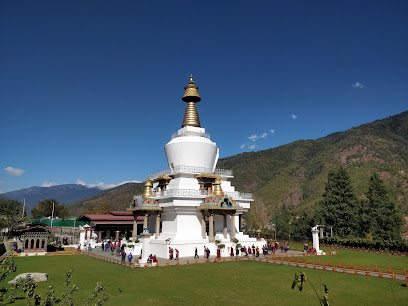
Clock Tower, Thimphu
Explore the beauty of Thimphu's Clock Tower, a cultural landmark that captures the spirit of Bhutan with its stunning architecture and vibrant surroundings.
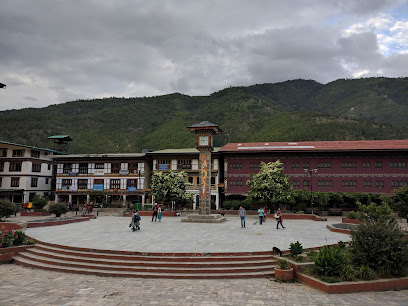
Royal Takin Preserve
Explore the Royal Takin Preserve, a serene wildlife sanctuary in Bhutan, home to the majestic Takin and other unique flora and fauna.
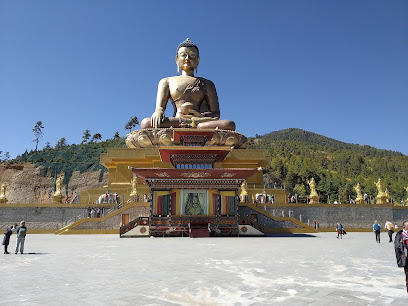
Simply Bhutan
Explore the vibrant culture and heritage of Bhutan at Simply Bhutan, a unique heritage museum in Thimphu showcasing the nation's rich traditions and artistry.
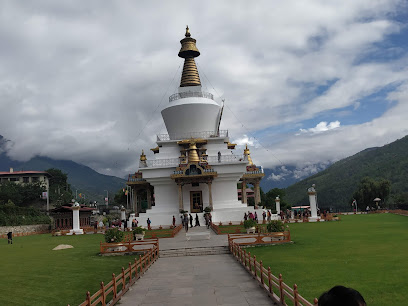
Folk Heritage Museum Kawajangsa
Discover the authenticity of Bhutanese culture and traditions at the Folk Heritage Museum in Thimphu, a captivating journey through the past.
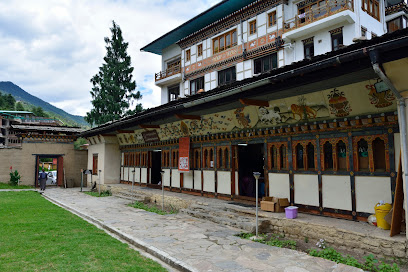
Teem Travel Bhutan
Discover the soul of Bhutan with Teem Travel Bhutan, your trusted partner for unforgettable adventures in the majestic Himalayan kingdom.
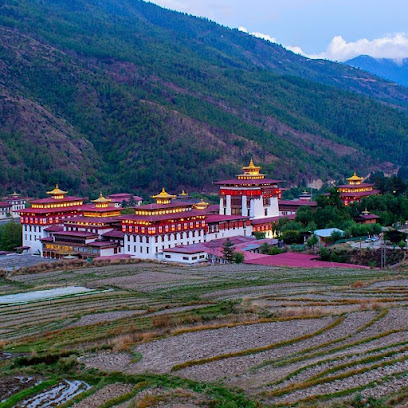
Simtokha Dzong སེམས་རྟོགས་ཁ་རྫོང་།
Experience the rich history and stunning architecture of Simtokha Dzong, a majestic fortress in Bhutan that embodies the country’s cultural heritage.
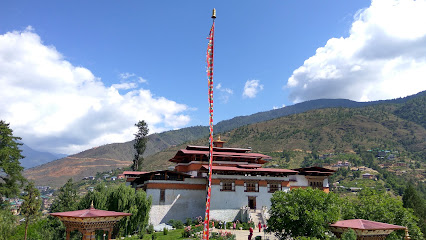
Le Méridien Thimphu
Discover the elegance of Le Méridien Thimphu, where luxury meets the rich culture of Bhutan's capital, offering an unforgettable stay for every traveler.

Royal Textile Academy རྒྱལ་འཛིན་ཐག་རིག་སློབ་སྡེ།
Explore the essence of Bhutanese culture at the Royal Textile Academy, where the art of weaving comes alive through vibrant exhibits and skilled artisans.
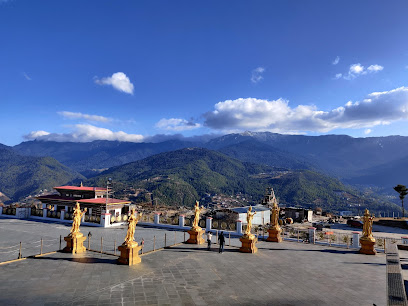
Heavenly Bhutan Travels
Explore Bhutan's majestic landscapes and rich culture with Heavenly Bhutan Travels, your trusted partner for unforgettable adventures in the Himalayas.
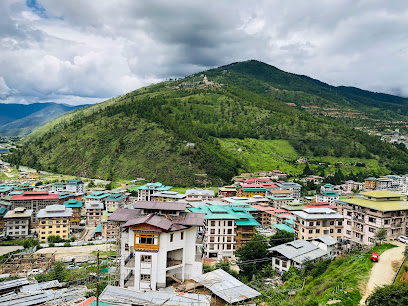
Centenary Farmers Market
Discover local flavors and vibrant culture at the Centenary Farmers Market in Thimphu, a must-visit for every traveler seeking authentic Bhutanese experiences.
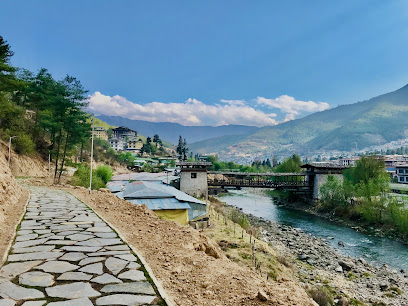
Terma Linca Resort & Spa
Discover the beauty of Bhutan at Terma Linca Resort & Spa, where luxury meets cultural immersion in a breathtaking natural setting.

Khamsum Inn
Experience the charm of Bhutan at Khamsum Inn, your cozy retreat in the heart of Thimphu, blending comfort with local culture.

Royal Botanical Garden Serbithang
Discover the Royal Botanical Garden Serbithang, a tranquil escape in Thimphu, showcasing Bhutan's exquisite biodiversity and lush landscapes.
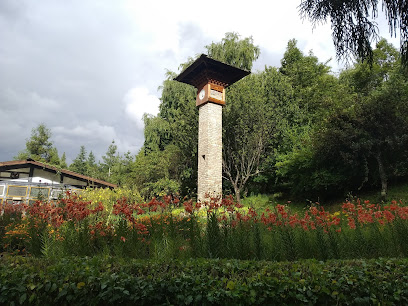
Unmissable attractions to see
National Museum of Bhutan འབྲུག་གི་འགྲེམས་སྟོན་ཁང་།
Explore the National Museum of Bhutan in Paro, showcasing the country's rich cultural heritage through stunning exhibits and breathtaking views.
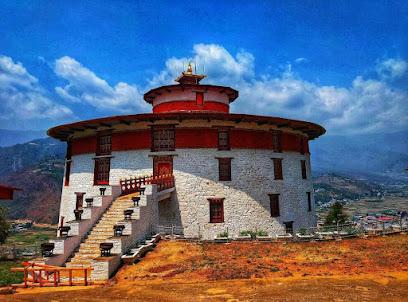
National Memorial Chorten རྒྱལ་ཡོངས་རྗེས་དྲན་མཆོད་རྟེན།
Experience the tranquil beauty of the National Memorial Chorten, a sacred Buddhist temple in Thimphu, Bhutan, dedicated to the nation's beloved Third King.
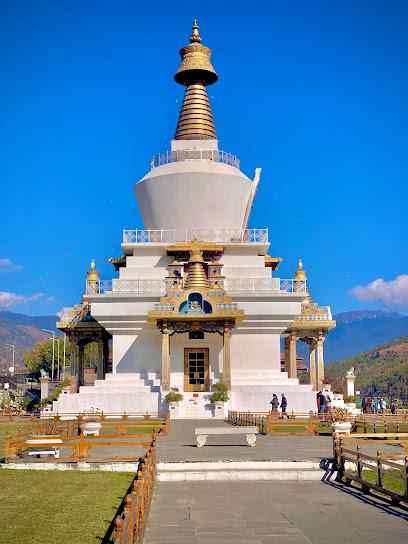
Punakha Dzong སྤུ་ན་ཁ་རྫོང་།
Explore the architectural splendor and serene beauty of Punakha Dzong, a must-see fortress and Buddhist temple in the heart of Bhutan.
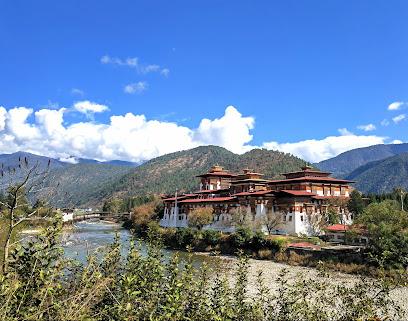
Suspension Bridge, Punakha
Cross the longest suspension bridge in Bhutan and embrace breathtaking views of Punakha's stunning landscapes.
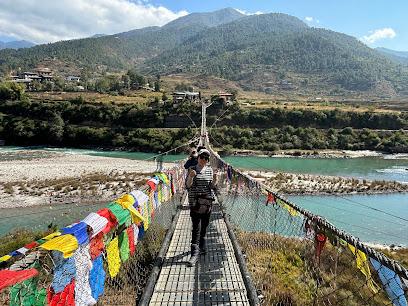
Clock Tower, Thimphu
Discover the charm of Thimphu's Clock Tower, a vibrant hub reflecting Bhutanese culture, surrounded by shops and local delicacies.
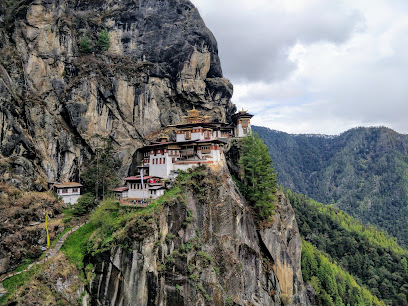
Royal Takin Preserve
Discover the Royal Takin Preserve in Motithang, Bhutan, where nature and wildlife converge in a serene sanctuary dedicated to Bhutan’s national animal.
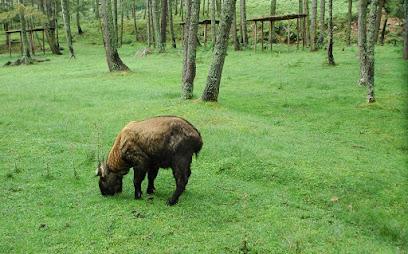
Simply Bhutan
Immerse yourself in the vibrant culture of Bhutan at Simply Bhutan, where history, art, and tradition come to life in an unforgettable experience.
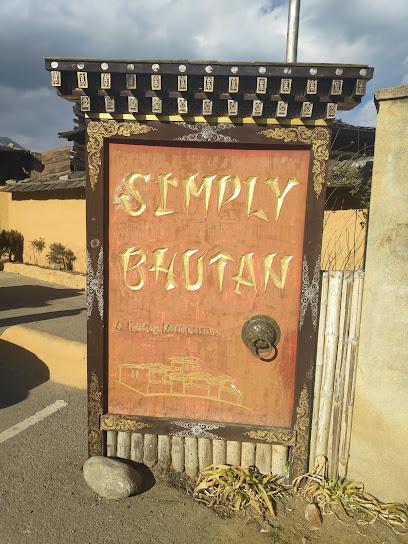
Folk Heritage Museum Kawajangsa
Explore Bhutan's cultural heritage at the Folk Heritage Museum Kawajangsa in Thimphu, where history and tradition come alive.
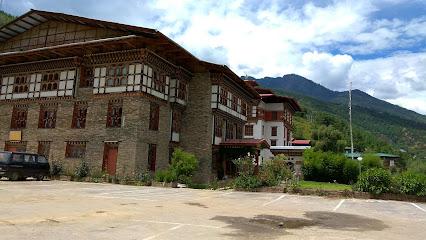
Simtokha Dzong སེམས་རྟོགས་ཁ་རྫོང་།
Explore the majestic Simtokha Dzong, a historical fortress in Bhutan that offers breathtaking views and a deep dive into the country's rich cultural heritage.
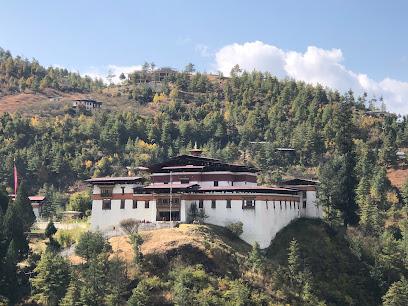
Royal Textile Academy རྒྱལ་འཛིན་ཐག་རིག་སློབ་སྡེ།
Discover Bhutan's rich textile heritage at the Royal Textile Academy, where art and culture intertwine to tell the story of a nation.
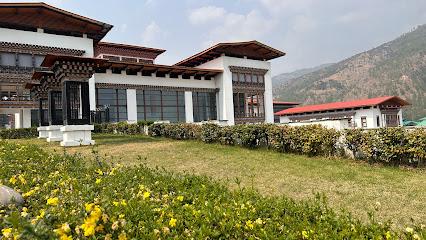
Paro Airport Bird's Eye View Point
Discover breathtaking views of Paro Valley and the Himalayan peaks at the Paro Airport Bird's Eye View Point, a scenic gem in Bhutan.
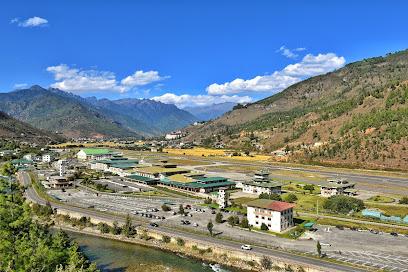
Centenary Farmers Market
Discover the essence of Bhutan at the Centenary Farmers Market, where fresh produce, traditional crafts, and local flavors come alive.
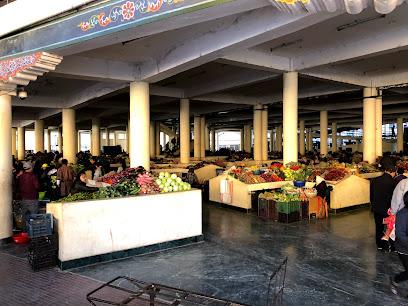
Chimi Lhakhang
Explore Chimi Lhakhang, Bhutan's Temple of Fertility, where faith meets stunning architecture and breathtaking landscapes in a serene spiritual setting.
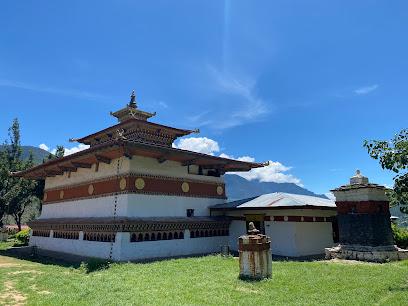
Kyichu Lhakhang སྐྱིད་ཆུ་ལྷ་ཁང་།
Explore the serene beauty and spiritual heritage of Kyichu Lhakhang, one of Bhutan's oldest and most revered Buddhist temples.
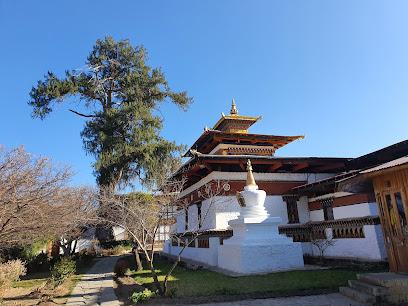
Mojo Park
Discover the vibrant nightlife of Mojo Park in Thimphu, where live music, delectable food, and a lively atmosphere await every visitor.
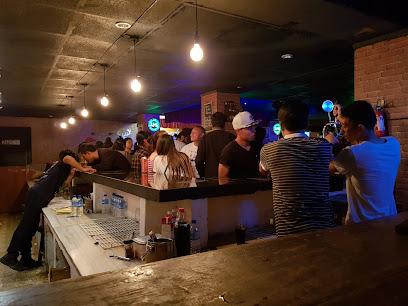
Essential places to dine
Ambient Cafe
Discover the charm of Ambient Cafe in Thimphu - where delicious food meets cozy ambiance and local culture.
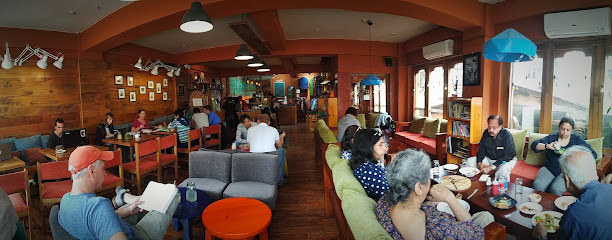
Zombala 2 Restaurant
Experience authentic Bhutanese flavors at Zombala 2 Restaurant in Thimphu - where every dish tells a story.
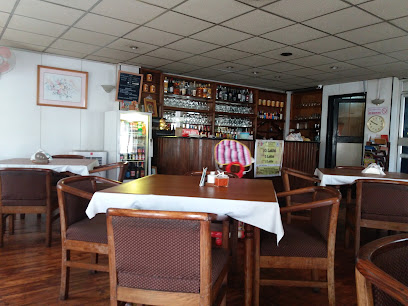
Babesa Village Restaurant
Experience authentic Bhutanese flavors at Babesa Village Restaurant – where every dish tells a story.
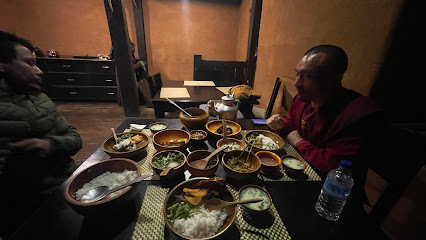
The Zone
Experience the vibrant flavors of Bhutan at The Zone - your go-to restaurant, café, and pub in Thimphu.
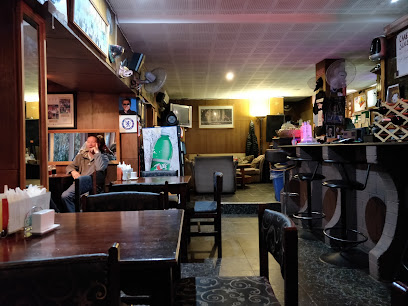
Druk Pizza
Discover delicious pizzas infused with local flavors at Druk Pizza in Thimphu – an essential stop for every traveler seeking culinary delight.
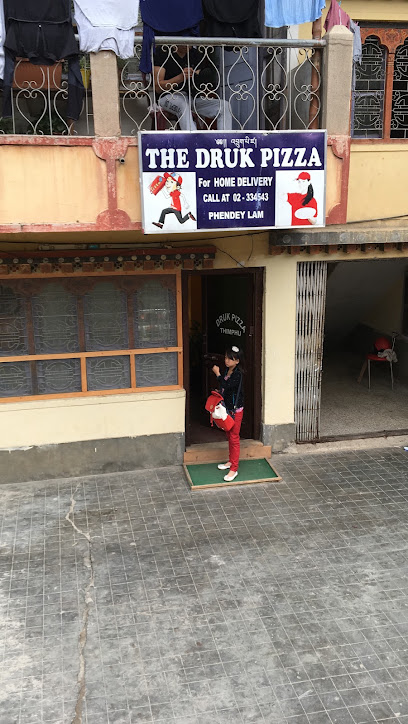
Zombala Restaurant
Discover authentic Bhutanese flavors at Zombala Restaurant in Thimphu – where tradition meets culinary innovation.
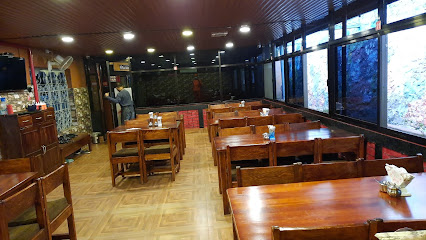
San Maru Restaurant
Experience authentic Korean flavors at San Maru Restaurant in Norzin – a culinary journey that delights every palate.
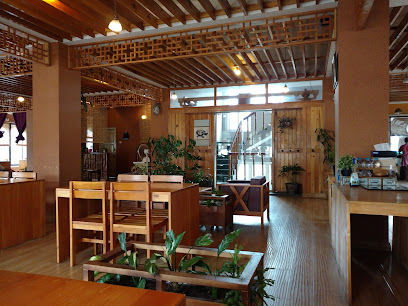
Hayate Ramen
Experience authentic Japanese ramen in Thimphu at Hayate Ramen - a culinary delight blending tradition with modern tastes.
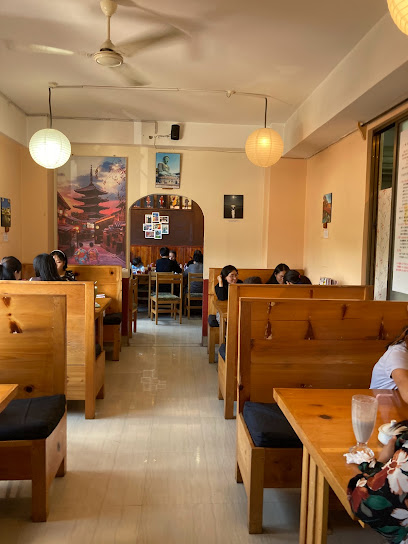
Karma's Dhaba
Discover authentic Bhutanese flavors at Karma's Dhaba in Thimphu - a culinary gem that celebrates local traditions.
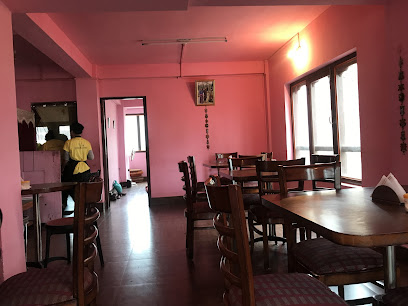
Spices Indian Restaurant
Experience authentic Indian flavors in the heart of Thimphu at Spices Indian Restaurant, where every dish tells a story.
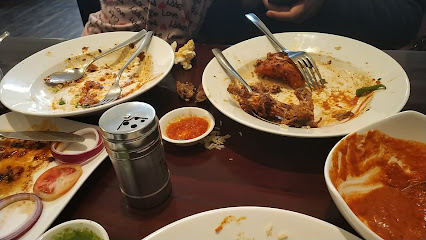
Chh'a Bistro and Bar
Experience authentic Bhutanese flavors blended with international cuisine at Chh'a Bistro and Bar in Thimphu.
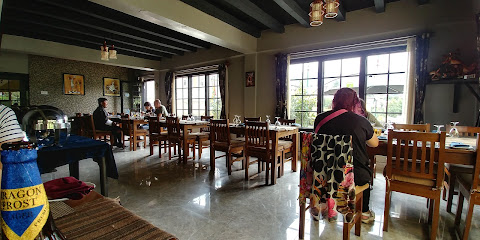
Cousin Restaurant And Café
Discover the essence of Bhutanese flavors at Cousin Restaurant And Café in Thimphu - where culinary tradition meets modern taste.
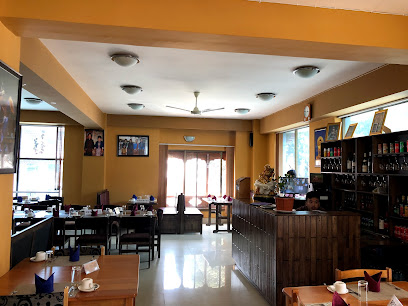
Silver Wok Restaurant
Experience authentic Bhutanese flavors blended with Asian cuisine at Silver Wok Restaurant in Thimphu.
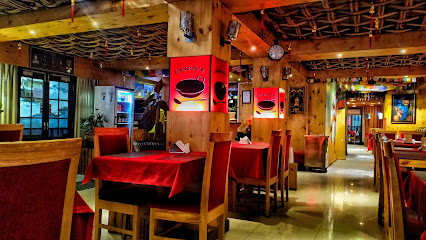
Druk Kitchen
Experience authentic Bhutanese flavors at Druk Kitchen - your gateway to the culinary heart of Thimphu.
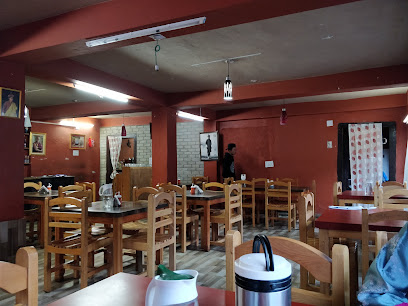
Project ZZA
Experience exquisite flavors at Project ZZA in Thimphu – where Bhutanese tradition meets modern cuisine.
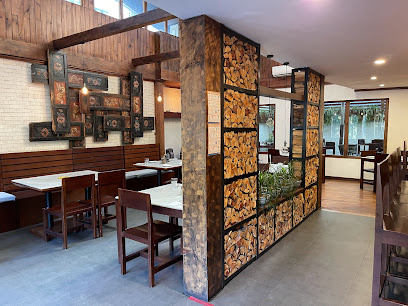
Markets, malls and hidden boutiques
YOYO Bhutan
Explore YOYO Bhutan in Thimphu, where tradition meets modernity in a stunning array of crafts and souvenirs that encapsulate Bhutan's rich culture.
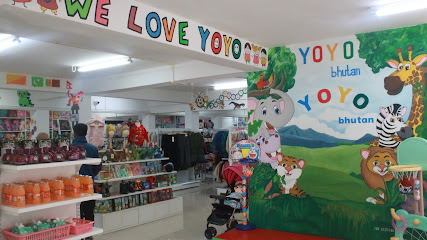
KOJA BHUTAN
Explore the charm of Bhutan through unique crafts and souvenirs at KOJA BHUTAN, your go-to gift shop in Thimphu.
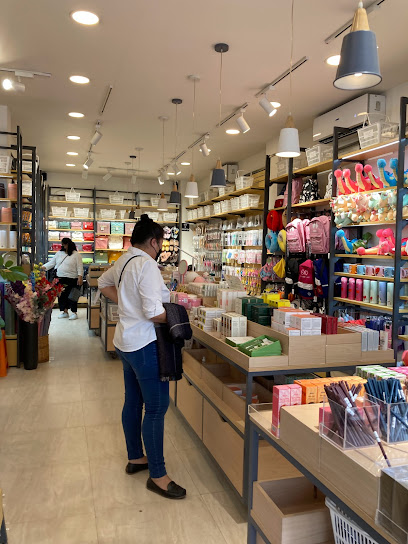
Drukpro Bhutan
Explore Drukpro Bhutan for authentic Bhutanese gifts and souvenirs that capture the spirit of this majestic kingdom.
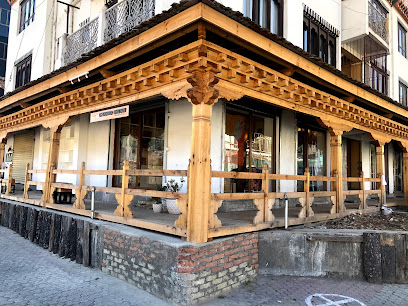
Miniso Bhutan མི་ཎི་སོ་ འབྲུག།
Explore the trendy offerings at Miniso Bhutan, where fashion meets affordability in the heart of Thimphu's vibrant shopping scene.
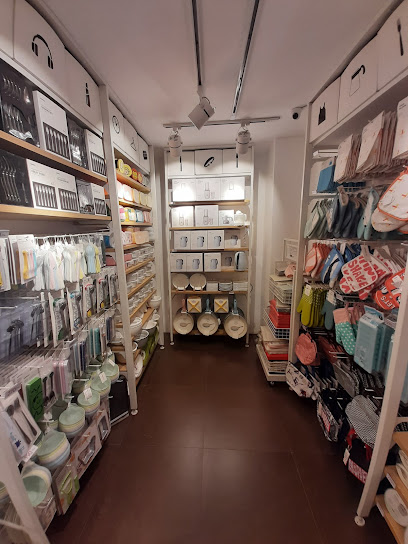
The Gadgets-Thimphu
Discover the magical world of Bhutanese music at The Gadgets-Thimphu, where tradition meets modernity in an unforgettable shopping experience.
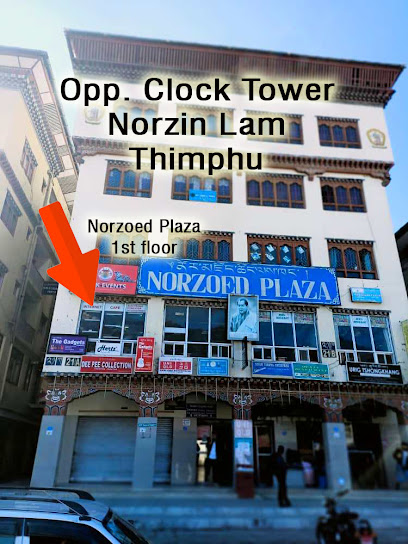
Bhutan Craft Market
Discover the heart of Bhutanese culture at the Bhutan Craft Market, where unique handmade souvenirs and local artistry come together in vibrant Thimphu.
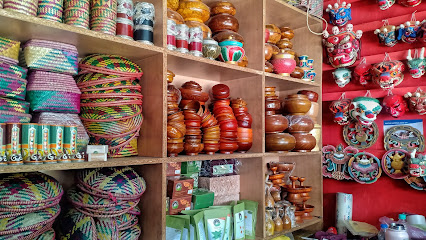
Norbooz Buray & Textiles
Discover authentic Bhutanese textiles and traditional clothing at Norbooz Buray & Textiles in Thimphu, a must-visit for culture enthusiasts.
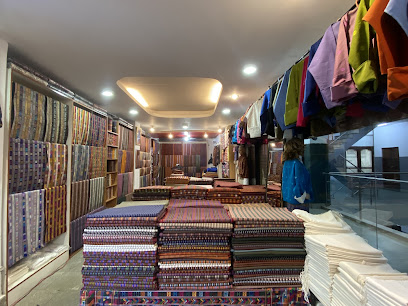
Miniso Bhutan
Explore Miniso Bhutan in Thimphu for unique lifestyle products and local treasures at affordable prices, embodying the spirit of Bhutan.
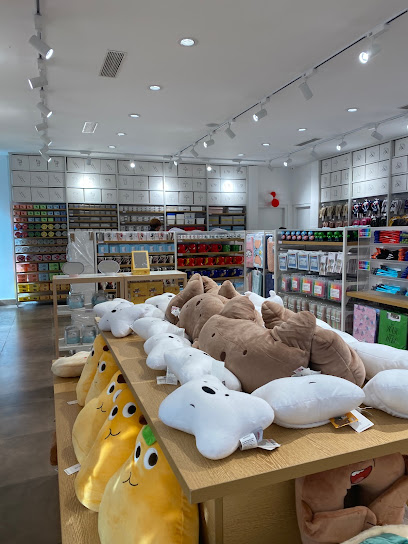
Korean House - OCS Premium Korean Cosmetics & Garments Bhutan
Explore the vibrant world of Korean beauty and fashion at Korean House in Thimphu, where quality meets style.

GAA PHEL SHOPPING CENTER Thimphu Bhutan (GPSC)
Explore the GAA PHEL Shopping Center in Thimphu for a unique blend of shopping, dining, and local culture in the heart of Bhutan's capital.
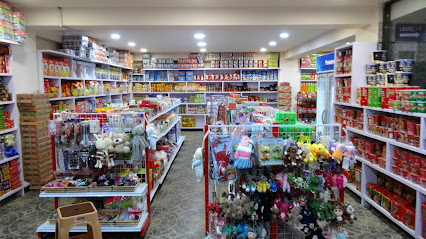
Bhutan Incense Store
Experience the aromatic wonders of Bhutan at the Bhutan Incense Store, where tradition and creativity come together in a fragrant paradise.
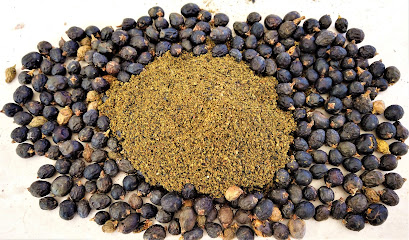
Dheyma Bhutan
Discover the essence of Bhutan at Dheyma Bhutan, your go-to variety store for local treasures and everyday essentials in Thimphu.
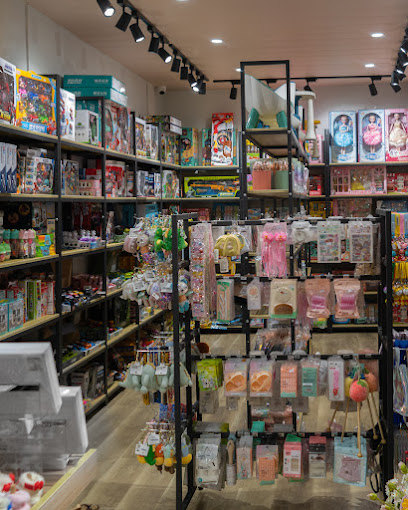
THE RUG HOUSE
Explore The Rug House in Thimphu for exquisite handcrafted rugs that showcase the rich tapestry of Bhutanese culture and craftsmanship.
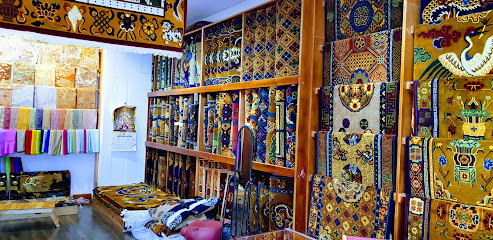
InStyle Thimphu
Discover a unique blend of traditional and contemporary fashion at InStyle Thimphu, Bhutan's premier clothing store in the heart of the capital.
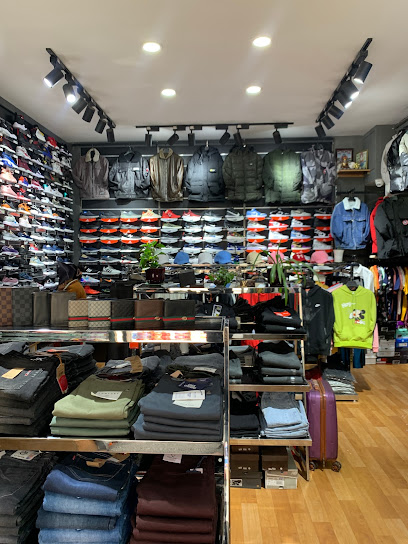
Popular Shop
Explore Bhutan's vibrant youth fashion at Popular Shop in Thimphu, where trendy styles meet local craftsmanship.
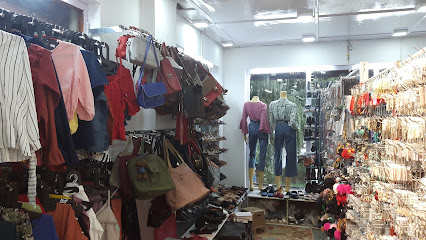
Essential bars & hidden hideouts
Mojo Park
Experience the vibrant nightlife of Thimphu at Mojo Park, where great food, live music, and a welcoming atmosphere come together.
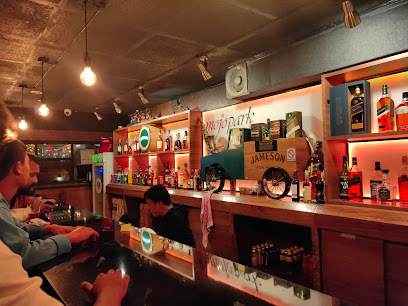
Drunken Yeti
Discover the vibrant nightlife of Thimphu at Drunken Yeti, where local culture meets modern bar vibes in a cozy setting.
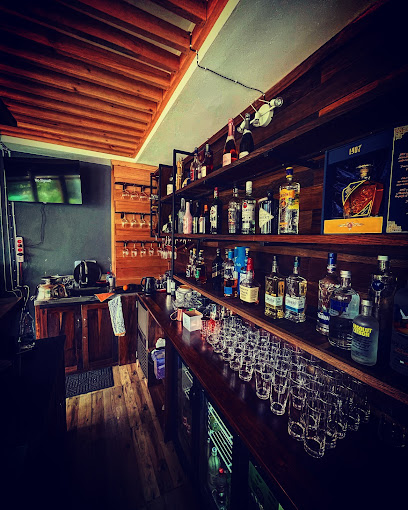
Real illusions Restro Bar
Discover the vibrant Real Illusions Restro Bar in Thimphu, where exquisite food meets a lively atmosphere for an unforgettable night out.
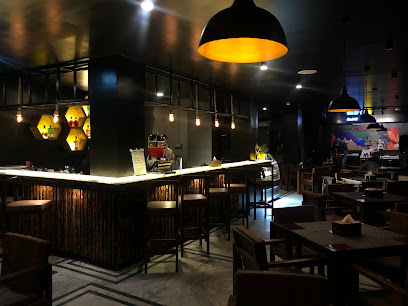
The Station, Bistro Bar & Entertainment
Experience the vibrant nightlife of Thimphu at The Station, your go-to bistro bar for drinks, food, and live entertainment.
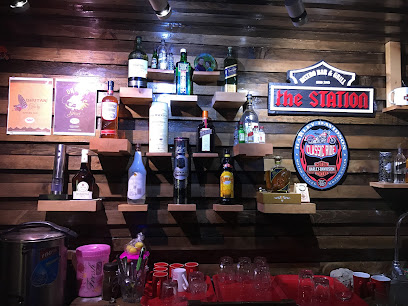
Jimmy's Pub-Thimphu
Discover the lively ambiance of Jimmy's Pub in Thimphu, where local drinks and delicious food meet Bhutanese hospitality.
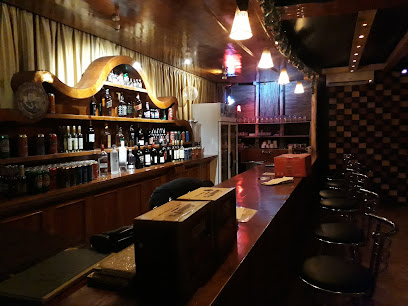
Tiger Pub
Experience Thimphu's vibrant nightlife at Tiger Pub, the ultimate karaoke bar for singing enthusiasts and social butterflies alike.
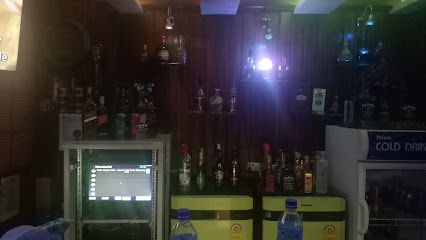
Om Pub
Experience the vibrant nightlife of Thimphu at Om Pub, where great drinks, live music, and a welcoming atmosphere await.
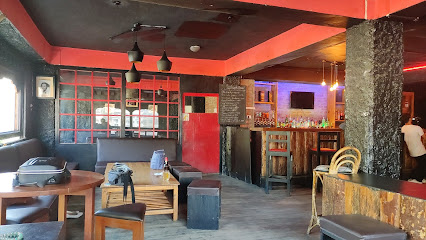
Garuda Bar & Cafe
Immerse yourself in the vibrant atmosphere at Garuda Bar & Cafe, Thimphu's premier destination for drinks, delicious food, and local culture.
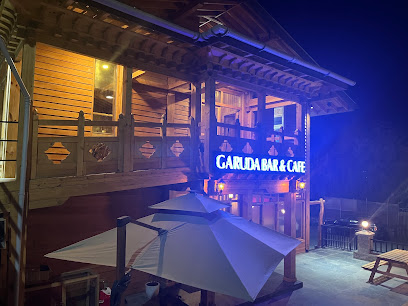
Hydeout bar
Discover the vibrant nightlife of Thimphu at Hydeout Bar, where local culture meets modern flair in a welcoming ambiance.
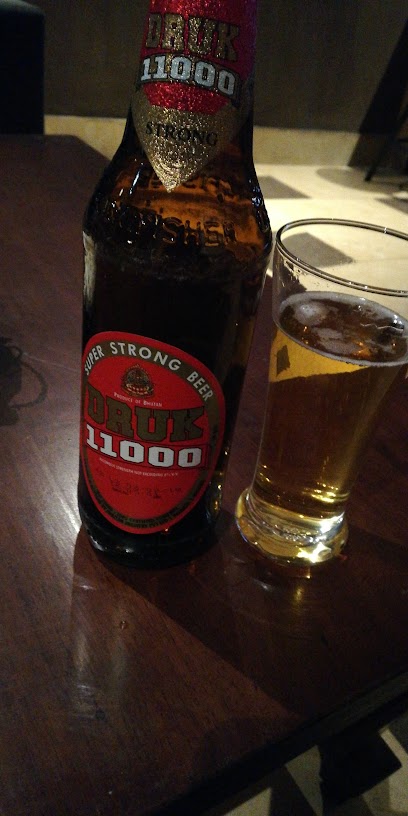
GO CRAZY BAR & Grill
Experience vibrant nightlife and local flavors at GO CRAZY BAR & Grill in Thimphu, Bhutan's lively dining destination.
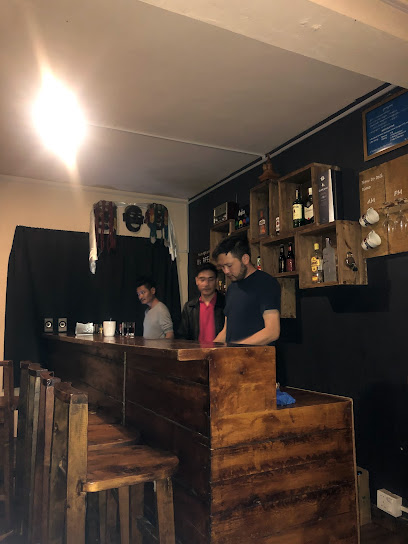
Hitokara Lounge & Bar
Hitokara Lounge & Bar in Thimphu offers a vibrant nightlife experience with a unique blend of cocktails and local flavors in a stylish and welcoming setting.
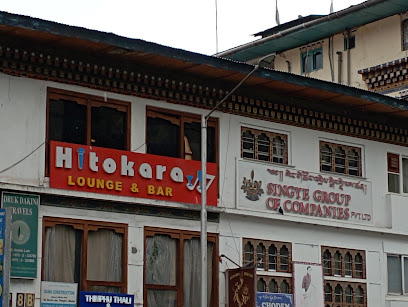
SLOUNGE THE RECREATION BAR
Discover the vibrant ambiance of Slounge The Recreation Bar in Thimphu, where craft drinks and friendly vibes await every traveler.
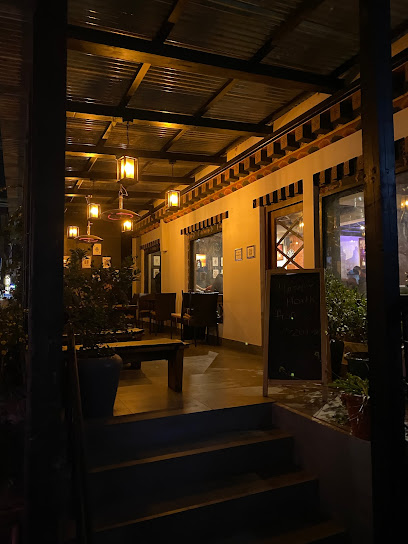
DOWN STAIRS BAR AND LOUNGE
Discover Thimphu's vibrant nightlife at Down Stairs Bar and Lounge, where great drinks and delicious food await in a cozy atmosphere.
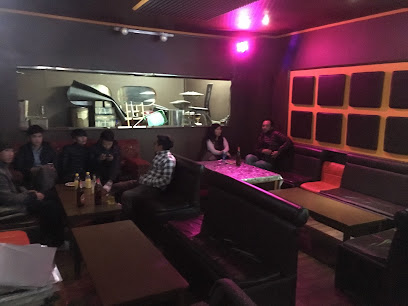
The Tipsy Cow
Experience the vibrant nightlife of Thimphu at The Tipsy Cow, a cozy bar offering a variety of drinks in a welcoming atmosphere.
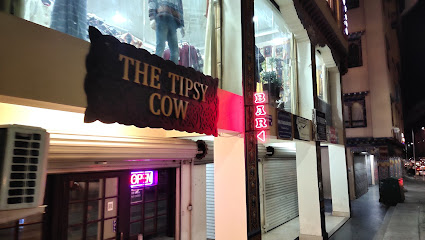
Local Phrases
-
- Helloཇོ ལ བཀྲིས
[jo la kris] - Goodbyeབསྟན་འགྲོ་བ
[sten agro ba] - Yesཡིན
[yin] - Noམེད
[med] - Please/You're welcomeསྐུ ར བྱ ར
[sku ra bya ra] - Thank youབསྟན་འགྲོ་བ
[sten agro ba] - Excuse me/Sorryརིག་པ་སེལ
[rig pa sel] - How are you?ཁྱེད་ཀ
[khyed ka] - Fine. And you?ལེགས ལ ཥ
[legs la sha] - Do you speak English?ཨིན ཇིན་ལས རིག་པ
[in jin las rig pa] - I don't understandཉིན ལ རིག་པར
[nyin la rig par]
- Helloཇོ ལ བཀྲིས
-
- I'd like to see the menu, pleaseམཛོད བ ཁོང
[dzod ba khong] - I don't eat meatབ མ རིག་མ
[ba ma rig ma] - Cheers!གོསྒོ
[goso] - I would like to pay, pleaseཐོན བ ཐུག
[thon ba thug]
- I'd like to see the menu, pleaseམཛོད བ ཁོང
-
- Help!སྒོ བ
[sgo ba] - Go away!སྒོ བ
[sgo ba] - Call the Police!སྒོ བ
[sgo ba] - Call a doctor!སྒོ བ
[sgo ba] - I'm lostཁོང ལ སྐུར
[khong la sku r] - I'm illཁོང ལ ལེན
[khong la len]
- Help!སྒོ བ
-
- I'd like to buy...མཛོད བ བསྡུར
[dzod ba sdu r] - I'm just lookingམཛོད བ སྤྱིར
[dzod ba spyir] - How much is it?འཛོལ ནས ཁོང ར
[dzol nas khong r] - That's too expensiveདུས བསྟན་འགྲོ་བ
[dus sten agro ba] - Can you lower the price?ཁོང བ ལེན ར
[khong ba len r]
- I'd like to buy...མཛོད བ བསྡུར
-
- What time is it?ཀུན ཚེ
[kun tshe] - It's one o'clockཀུན མི་ཞི
[kun mi zhi] - Half past (10)གཉིས ཟ།
[nyi zha] - Morningཉིན་མ
[nyin ma] - Afternoonལྷ་བ
[lha ba] - Eveningཉིན མ
[nyin ma] - Yesterdayཁ་ཉིན
[kha nyin] - Todayད་ཉིན
[da nyin] - Tomorrowཉིན ད
[nyin da] - 11
[1] - 22
[2] - 33
[3] - 44
[4] - 55
[5] - 66
[6] - 77
[7] - 88
[8] - 99
[9] - 1010
[10]
- What time is it?ཀུན ཚེ
-
- Where's a/the...?ཁ ར ཆེ ཁ ས
[kha ra che kha sa] - What's the address?རས གིས ཁོང ར
[ras gis khong r] - Can you show me (on the map)?ཁོང བ ནང ཅི
[khong ba nang chi] - When's the next (bus)?འཛོལ ནས ཁོང ར
[dzol nas khong r] - A ticket (to ....)ཐོན མྱ ར
[thon mya r]
- Where's a/the...?ཁ ར ཆེ ཁ ས
History of Thimphu
-
Thimphu, the capital city of Bhutan, has its origins rooted in the 13th century when Phajo Drugom Zhigpo, a Tibetan Lama, established the first monastery in the region. This marked the beginning of Thimphu's development as a religious and cultural center.
-
In the 17th century, Shabdrung Ngawang Namgyal, a unifying figure in Bhutanese history, constructed the Tashichho Dzong. This fortress-monastery has served as the seat of Bhutan's civil government and the summer residence of the monastic body. The Dzong has undergone several renovations, the most significant in the 1960s under King Jigme Dorji Wangchuck.
-
In the late 19th century, Thimphu played a crucial role in the unification of Bhutan under the Wangchuck dynasty. Ugyen Wangchuck, the first King of Bhutan, utilized Thimphu as a base to consolidate power and bring stability to the region.
-
In 1961, King Jigme Dorji Wangchuck officially declared Thimphu as the capital of Bhutan, moving the administrative center from Punakha. This decision marked the beginning of modern development in Thimphu, including the construction of infrastructure and government buildings.
-
Throughout the 20th century, Thimphu experienced significant modernization despite maintaining its traditional charm. The introduction of planned urban development, roads, and public services transformed Thimphu into a bustling city while preserving its unique cultural heritage.
-
One of Thimphu's most significant cultural events is the Thimphu Tshechu, a religious festival held every autumn. Established in the 17th century by Shabdrung Ngawang Namgyal, this festival features masked dances, traditional music, and vibrant costumes, drawing both locals and tourists alike.
-
Built in 1974 in memory of King Jigme Dorji Wangchuck, the National Memorial Chorten is one of Thimphu's most iconic landmarks. It serves as a place of daily worship for the Bhutanese people and symbolizes peace and prosperity.
-
In 1953, King Jigme Dorji Wangchuck established the National Assembly in Thimphu, marking a significant step towards democratic governance. This institution laid the foundation for Bhutan's gradual transition to a constitutional monarchy.
-
In 2003, the Royal University of Bhutan was established in Thimphu, aiming to provide higher education and promote research within the country. This institution has played a vital role in the intellectual and cultural development of Bhutan.
-
Completed in 2015, the Buddha Dordenma statue is a massive Shakyamuni Buddha statue located in the hills overlooking Thimphu. Standing at 54 meters tall, it is one of the largest Buddha statues in the world and houses over 100,000 smaller Buddha statues within it.
Thimphu Essentials
-
Thimphu, the capital city of Bhutan, is primarily accessible via air travel. The nearest international airport is Paro International Airport, located about 55 kilometers from Thimphu. Druk Air and Bhutan Airlines operate flights to Paro from several international destinations including Delhi, Bangkok, Kathmandu, and Singapore. From Paro, you can take a taxi or a pre-arranged hotel transfer to Thimphu, which typically takes around 1.5 hours by road through scenic mountainous terrain.
-
Thimphu is a compact city, and many attractions are within walking distance. Taxis are readily available and are the most common form of transportation within the city. You can also hire a car with a driver for more flexibility. Public buses operate within Thimphu and to other destinations in Bhutan, but schedules can be irregular. For a unique experience, consider hiring a bicycle to explore the city at your own pace.
-
The official currency in Bhutan is the Ngultrum (BTN), which is pegged to the Indian Rupee (INR). Credit cards are accepted in major hotels, restaurants, and shops, but it is advisable to carry cash for smaller establishments and rural areas. ATMs are available in Thimphu, but international cards may not always work, so it is wise to withdraw sufficient cash beforehand.
-
Thimphu is generally a safe destination for tourists. However, it is always advisable to take standard precautions such as avoiding unlit areas at night and keeping an eye on your belongings in crowded places. There are no specific high-crime areas targeting tourists in Thimphu, but staying vigilant and aware of your surroundings is always a good practice.
-
In case of an emergency, dial 113 for police assistance or 112 for medical emergencies. Thimphu has several hospitals and clinics that provide medical care. It is recommended to have travel insurance that covers medical emergencies. For minor health issues, there are numerous pharmacies in the city where you can purchase over-the-counter medications.
-
Fashion: Do dress modestly, especially when visiting religious sites. Avoid wearing revealing clothing. Religion: Do respect local customs and traditions. Always remove your shoes and cover your head when entering temples and monasteries. Public Transport: Do be respectful and give up your seat to elderly passengers. Don’t eat or drink on public transport. Greetings: Do greet people with a slight bow and say 'Kuzuzangpo'. A handshake is also acceptable. Eating & Drinking: Do try local delicacies and accept food offerings graciously. Don’t refuse hospitality, as it is considered impolite.
-
To experience Thimphu like a local, visit the weekend market where you can buy fresh produce and traditional Bhutanese goods. Engage with locals, as they are often friendly and willing to share stories about their culture and traditions. Don't miss the chance to attend a local festival (Tsechu), which is a vibrant display of Bhutanese culture. For a unique experience, take a walk along the Wang Chhu River or hike to the Buddha Dordenma statue for panoramic views of the city.
Trending Landmark in Thimphu
-
Buddha Dordenma Statue སྟོན་པ་རྡོར་གདན་མ།
-
National Memorial Chhorten རྒྱལ་ཡོངས་རྗེས་དྲན་མཆོད་རྟེན།
-
Clock Tower, Thimphu
-
Royal Takin Preserve
-
Simply Bhutan
-
Folk Heritage Museum Kawajangsa
-
Teem Travel Bhutan
-
Simtokha Dzong སེམས་རྟོགས་ཁ་རྫོང་།
-
Le Méridien Thimphu
-
Royal Textile Academy རྒྱལ་འཛིན་ཐག་རིག་སློབ་སྡེ།
-
Heavenly Bhutan Travels
-
Centenary Farmers Market
-
Terma Linca Resort & Spa
-
Khamsum Inn
-
Royal Botanical Garden Serbithang
Nearby Cities to Thimphu
-
Things To Do in Paro
-
Things To Do in Wangdue Phodrang
-
Things To Do in Punakha
-
Things To Do in Phuentsholing
-
Things To Do in Trongsa
-
Things To Do in Gangtok
-
Things To Do in Bumthang
-
Things To Do in Jakar
-
Things To Do in Darjeeling
-
Things To Do in Siliguri
-
Things To Do in Mongar
-
Things To Do in Trashigang
-
Things To Do in Rangpur
-
Things To Do in Guwahati
-
Things To Do in Namche Bazaar













